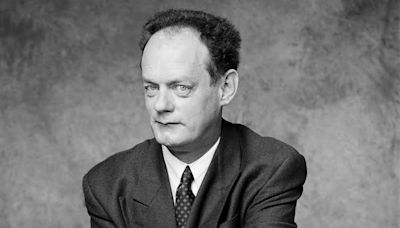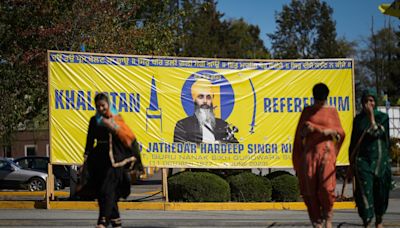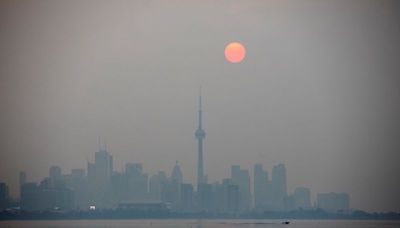Search results
Justin Pierre James Trudeau PC MP (/ ˈ t r uː d oʊ, t r uː ˈ d oʊ / ⓘ TROO-doh, troo-DOH, French: [ʒystɛ̃ pjɛʁ dʒɛms tʁydo]; born December 25, 1971) is a Canadian politician who has served as the 23rd prime minister of Canada since 2015 and the leader of the Liberal Party since 2013.
Learn about Justin Trudeau's biography, vision, and latest news as the 23rd Prime Minister of Canada. Find out his itinerary, statements, and achievements on various issues.
- Thomas Klassen
- Gender equity. Trudeau acted quickly to fulfil his promises on gender equality, appointing a cabinet that was — and continues to be — 50 per cent women.
- Indigenous agenda. Trudeau also acted quickly on his reconciliation agenda with Canada’s Indigenous communities. Expectations were high, but only limited progress has been made on access to services such as drinking water, child welfare, housing and health care for First Nations, Inuit and Métis people.
- Legal drugs. A controversial platform item in 2015 was the legalization of cannabis, which departed from the prohibitionist view held by previous governments of all political stripes.
- Other initiatives. Other noteworthy reforms under Trudeau include non-partisan Senate appointments, a carbon tax and early learning and child-care bilateral agreements.
The Right Honourable Justin Trudeau, Prime Minister of Canada. Justin Trudeau (born December 25, 1971) is Canada’s 23rd Prime Minister and the proud father of Xavier, Ella-Grace, and Hadrien. Justin’s vision of Canada is a country where everyone has a real and fair chance to succeed.
- Overview
- Early life and start in politics
Justin Trudeau (born December 25, 1971, Ottawa, Ontario, Canada) Canadian politician, prime minister of Canada (2015– ), leader of the Liberal Party (2013– ), and son of four-term prime minister of Canada Pierre Trudeau.
Justin Trudeau’s Christmas-night birth to Canada’s first couple was the opening act in a life lived largely in the public eye. When Trudeau was six years old, his parents divorced, and his mother, Margaret (29 years younger than her husband, daughter of Liberal MP James Sinclair, and target of rumours that she had had romances with rock stars and other celebrities), moved out. As a result, Trudeau and his two younger brothers were raised by a single father who also led his country for 15 years (1968–79; 1980–84). After studying at Collège Jean-de-Brébeuf, the same private French-language Jesuit school in Montreal that his father had attended, Trudeau earned a B.A. in English from McGill University (1994). He then worked as a snowboard instructor while earning a degree in education from the University of British Columbia (B.Ed., 1998). Thereafter he taught high-school French and elementary-school math in Vancouver. In 2000, at age 28, he delivered an eloquent, moving eulogy at his father’s funeral that thrust him again into the national spotlight.
After returning to Quebec in 2002, Trudeau began and then abandoned engineering studies at the University of Montreal. He also pursued but did not complete an M.A. in environmental geography at McGill. In the meantime, he worked at a Montreal radio station, for which he covered the 2004 Olympic Games in Athens, had a role in the television miniseries The Great War (2007), and was an unpaid spokesman for the Canadian Parks and Wilderness Society. Perhaps most significantly, he served as the chairman of the board of directors of Katimavik (2002–06), the national youth volunteer organization established by his father in 1977.
Soon after Trudeau delivered his father’s eulogy, Canadian Prime Minister Jean Chrétien let it be known that there was a place for him in the Liberal Party. After being courted to stand for Parliament by Liberal leader Stéphane Dion, in 2008 Trudeau ran for and won the seat representing Papineau, an ethnically diverse riding in Montreal that Trudeau had chosen over a safer seat to prove he could win an uphill battle rather than coasting on his father’s name. In 2011, even as the Liberals flopped—falling from the official opposition to the third party, with only 34 seats—Trudeau was reelected. He acted as party spokesman on youth and multiculturalism, citizenship and immigration, and amateur sports, among other areas. Handsome, youthful, and charismatic, Trudeau was seen by many as the Liberals’ best hope to lead them back to prominence. In 2013, after mounting an exhaustive campaign, he won the party leadership, trouncing a crowded field in an online and phone-in vote in which Trudeau captured nearly 80 percent of the more than 100,000 votes cast. Almost immediately, Conservatives sought to define him as an intellectual lightweight with a pretty face and a famous name who was ill prepared to lead Canada. Yet Trudeau appeared to be preparing for the 2015 general election fight with the same scrappy determination that brought him an unexpected underdog victory in a high-profile charity boxing match against Conservative Sen. Patrick Brazeau in March 2012.
The Liberal leader Trudeau traversed a slippery slope in May 2015 during the debate and voting on Bill C-51, which was aimed at strengthening existing antiterrorism legislation and expanding the surveillance powers of Canadian security forces in the wake of the separate terrorist attacks in October 2014, in which soldiers were attacked in a Quebec parking lot and at the National War Memorial in Ottawa. Opponents of the bill said that it violated civil liberties. Trudeau drew criticism from some corners for saying that he opposed the bill even as he voted for it so that a “no” vote could not be used against him later politically by Conservative Prime Minister Stephen Harper.
From the very start of the 2015 federal election campaign in early August, Harper sought to portray Trudeau as “not ready” to lead the country. Trudeau was chided early in the campaign by some for empty sloganeering when he suggested that the economy should be grown not from the top down but “from the heart outwards.” However, Trudeau deftly positioned himself to the left of Thomas Mulcair, the leader of the traditionally leftist New Democratic Party (NDP), by arguing that three years of deficit spending would be necessary to finance spending on infrastructure improvements for the good of society and the economy, whereas Mulcair occupied the more-centrist position of saying that any expansion to social programs would be dependent on achieving a balanced budget.
Special offer for students! Check out our special academic rate and excel this spring semester!
Mar 15, 2024 · 15 March 2024. By Jessica Murphy,BBC News. Reuters. Canada's prime minister says he frequently thinks about leaving his "crazy job" but plans to stay on through another election. Justin Trudeau...
Sep 21, 2021 · Tue 21 Sep 2021 13.02 EDT. Justin Trudeau has secured a third election victory, but his decision to call a snap election was criticised by political opponents – and even allies – after the...




